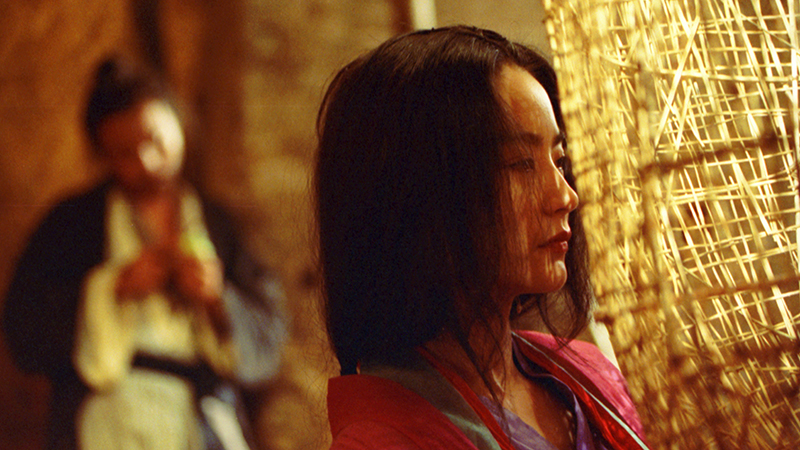
Ashes of Time (1994) presents Wong Kar Wai’s ambitious take on the martial arts genre, wuxia (武侠- literally translating to “martial heroes”). Ashes of Time: Redux (2008) is the re-edited and re-scored version of the film. Instead of making a direct adaptation, Wong merely draws characters from Jin Yong’s cult novel, The Legend of the Condor Heroes. He weaves them into a complex tapestry about human connections, building his own backstory about youthful romanticism in an unfamiliar setting that still manages to complement the rest of his work.
The film is guided by the seasons and tungshing (通胜), the Chinese almanac that provides daily divine guidance. Elusive strands of narrative span across time, intersecting the lives of different characters with the central narrator— a self-exiled assassin who lives in the middle of the desert. Their separate misfortunes are woven together by the solitary man, slowly revealing more about his own loss with the war of love. Ultimately, the disparate strands all being to make sense, creating a grand tapestry that celebrates love and loss. The very fabric of human experience. Just like any other Wong Kar Wai, repressed loved, yearning, missed chances, and absence are all explored with a sense of timeless relevance.
The landscape always informs the music, characters, narrative, and mood of Wong’s films. In Ashes of Time, the desert is an escape far away from others with no trace of the past or future. Still, memories torment the characters the more they try to forget. Within the desert, the changing of seasons ebb and flow in correlation to flashes of memory and the characters’ present lives. Complementary to this, the Five Elements (wuxing) interact in the harsh landscape. Fire, water, wood, metal, and earth. Christopher Doyle’s cinematography captures the sprawling landscapes, honing a balance between intensity and serenity as vivid yellows and blues paint the screen. In an interview for The Cinema of Wong Kar Wai, Wong says “All the shots of the desert in Ashes of Time were done by Chris…they were his poetry”. The whole film is intoxicated by this transcendental setting, further enthralling viewers into the fascinating tapestry.
Although it is surprising to see frequenters of Wong Kar Wai’s modern love stories suddenly transposed into a dessert during ancient China, the cast all give strong performances that attest to their range as actors. The dialogue and script are witty yet pensive. Its non-linear approach and broad narrative scope keep the pace decently engaging throughout. However, this proves difficult to follow if one has issues with remembering faces and names.
Its liberal approach to such a commercial genre can be alienating for audiences who mostly expect epic tales and action shots of heroes in combat. It’s poor performance at the box office and its excessively arduous production that went over-time at the cost of HK$47 million also gives it a bad reputation. However, it’s definitely a film to be mulled over, where a little time or a rewatch will afford greater appreciation and understanding for its intricate weaving.
Bonnie Huang
